#cause and effect of climate change
Explore tagged Tumblr posts
Text
The Vanishing Waters: Unveiling the Alarming Rate of Degradation in Our World's Water-Related Ecosystems
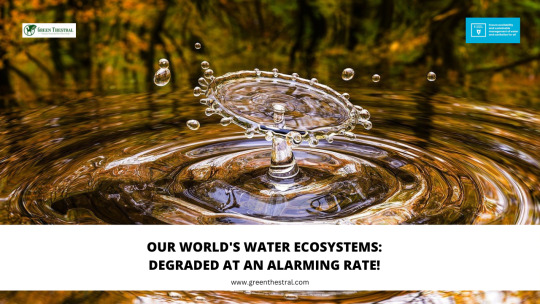
Our planet's water-related ecosystems are the lifeblood of biodiversity and play a crucial role in sustaining life on Earth. These diverse habitats, ranging from serene lakes and flowing rivers to vibrant coral reefs and teeming wetlands, provide essential services that are essential for human survival and the well-being of countless species. However, a looming crisis threatens the very existence of these vital ecosystems. The world's water-related ecosystems are being degraded at an alarming rate, putting our environment, wildlife, and even our own future at risk. In this article, we will delve into the causes, consequences, and potential solutions to combat this pressing issue and ensure the survival of these precious ecosystems.
The Magnitude of the Crisis
The degradation of water-related ecosystems is a global challenge that requires immediate attention. Around the world, these habitats are facing a range of threats, including pollution, habitat destruction, overfishing, climate change, and invasive species. These factors, often interconnected, are wreaking havoc on the delicate balance within these ecosystems.
Pollution: A Slow Poison
One of the leading culprits behind the deterioration of water-related ecosystems is pollution. Industrial waste, agricultural runoff, and untreated sewage find their way into our waters, contaminating them with harmful chemicals and plastics. These pollutants not only harm aquatic life but also have far-reaching consequences for humans who rely on these water sources for drinking and agriculture.
Habitat Destruction: Losing Our Natural Havens
The relentless expansion of human activities, including deforestation and urbanization, is rapidly encroaching upon the habitats of various aquatic species. Wetlands are drained, mangroves are cleared, and rivers are diverted, disrupting the natural flow and interconnectedness of these ecosystems. As a result, countless species lose their homes and face the threat of extinction.
Overfishing: Depleting the Ocean's Bounty
Overfishing is pushing marine ecosystems to the brink of collapse. Unregulated and unsustainable fishing practices, coupled with the demand for seafood, are causing a decline in fish populations, disrupting food chains, and jeopardizing the livelihoods of coastal communities that depend on fishing for survival.
Climate Change: The Silent Menace
Perhaps the most insidious threat to water-related ecosystems is climate change. Rising global temperatures lead to the melting of polar ice caps, causing sea levels to rise and intensifying storms and floods. These changes have devastating effects on coastal areas, submerging critical habitats, and causing the loss of biodiversity.
Consequences of Ecosystem Degradation
The degradation of water-related ecosystems has severe consequences for both the environment and human societies. As these ecosystems collapse, they disrupt the services they provide, such as water purification, flood control, and carbon sequestration, impacting human health and economies worldwide.
Biodiversity Loss: A Precarious Chain Reaction
Water-related ecosystems are home to a vast array of species, many of which are uniquely adapted to these environments. As these habitats deteriorate, many species face extinction, triggering a chain reaction that affects the entire ecosystem. The loss of one species can have cascading effects on others, disrupting the delicate web of life.
Threats to Food Security
Fisheries, both marine and freshwater, play a significant role in providing sustenance to billions of people around the globe. The depletion of fish populations due to overfishing and habitat destruction threatens the food security and livelihoods of millions, particularly in developing countries that heavily rely on fish as a primary protein source.
The Impact on Human Health
The quality of our water is directly linked to our health. Polluted water can cause waterborne diseases, affecting millions of people each year. Additionally, the loss of water-related ecosystems reduces the availability of clean water for drinking and sanitation, exacerbating the global water crisis.
Rising Economic Costs
The degradation of water-related ecosystems comes with a hefty price tag. Loss of fisheries, increased frequency of floods, and the decline of coastal protection services result in billions of dollars in economic losses each year. The expenses related to ecosystem restoration and mitigation efforts add further strain on already burdened economies.
Restoring the Balance: A Call to Action
Despite the grim picture painted by the state of our water-related ecosystems, there is hope. By acknowledging the urgency of the situation and taking collective action, we can begin the process of restoring the balance and ensuring the survival of these vital habitats.
Strengthening Environmental Regulations
Governments and policymakers must implement and enforce stringent environmental regulations to control pollution, protect habitats, and promote sustainable fishing practices. Strengthening international cooperation on environmental issues is also essential, as water-related ecosystems transcend national boundaries.
Sustainable Water Management
Water is a finite resource, and sustainable water management is key to ensuring the survival of water-related ecosystems. Implementing efficient irrigation systems, reducing water wastage, and prioritizing the conservation of natural water bodies are vital steps in this direction.
Embracing Renewable Energy
Transitioning to renewable energy sources can significantly mitigate climate change and its impact on water-related ecosystems. Embracing solar, wind, and hydroelectric power can reduce greenhouse gas emissions and limit the rise in global temperatures.
Community Involvement and Education
Engaging local communities in conservation efforts is crucial for the success of any environmental initiative. Raising awareness about the importance of water-related ecosystems and involving communities in restoration projects fosters a sense of ownership and responsibility.
Supporting Conservation Organizations
Supporting organizations like Green Thestral Inc. that are dedicated to environmental conservation can make a significant difference. Contributing to their efforts through donations or volunteer work helps fund critical projects aimed at protecting and restoring water-related ecosystems.
Conclusion
The state of the world's water-related ecosystems demands urgent attention and action from all corners of society. As individuals, communities, and nations, we hold the power to turn the tide and secure the future of these invaluable habitats. By addressing the root causes of degradation, promoting sustainable practices, and supporting conservation initiatives, we can pave the way for a healthier planet and a brighter future for all living beings. Together, let us safeguard the irreplaceable beauty and biodiversity of our water-related ecosystems for generations to come.
What's In It For Me? (WIIFM)
Are you concerned about the future of our planet and the well-being of its inhabitants? The degradation of the world's water-related ecosystems impacts us all. By understanding the urgency of this issue, we can take action to protect these vital habitats, safeguard our environment, and ensure a sustainable future for generations to come. Discover how you can make a difference in preserving the beauty and biodiversity of our precious water ecosystems.
Call to Action (CTA)
Join the movement to save our water-related ecosystems! Take action today by supporting Green Thestral Inc., an organization dedicated to environmental conservation. Donate to fund critical projects, volunteer to restore habitats, and spread awareness about the urgent need to protect these fragile ecosystems. Together, we can make a positive impact and secure the future of our planet's water habitats. Act now and be a part of the solution!
Blog Excerpt
The world's water-related ecosystems are under siege, facing a grave threat from human activities and climate change. These habitats, from serene lakes and rivers to vibrant coral reefs and wetlands, are essential for biodiversity and provide crucial services that sustain life on Earth. However, pollution, habitat destruction, overfishing, and rising temperatures are pushing these ecosystems to the brink of collapse. In our latest blog article, we delve into the alarming rate of degradation in these habitats, the consequences of their decline, and the actions we can take to protect and restore them. Join us in the fight to safeguard the future of our water-related ecosystems.
Meta Description (320 characters)
Discover the alarming rate of degradation in the world's water-related ecosystems and its impact on our environment. Learn how you can take action and be a part of the solution to protect these vital habitats. Join Green Thestral Inc. in the fight for environmental conservation.
#Degradation of water ecosystems#Alarming rate of habitat loss#Water pollution consequences#Impact of overfishing on ecosystems#Climate change and water habitats#Threats to marine biodiversity#Importance of wetland conservation#Coral reef degradation causes#Solutions for protecting rivers#Restoring freshwater habitats#Role of mangroves in coastal protection#Human impact on aquatic ecosystems#Water conservation and sustainability#Protecting endangered marine species#Ecosystem restoration initiatives#The link between human health and water quality#Economic effects of ecosystem collapse#Sustainable fishing practices#Conservation NGOs for water ecosystems#Community involvement in environmental protection#Global water crisis and its solutions#Rising sea levels and coastal ecosystems#Biodiversity loss in freshwater environments#Importance of clean drinking water#Erosion and riverbank degradation#Wetland restoration projects#Climate resilience of coral reefs#Protecting estuaries and deltas#Urbanization and water ecosystem destruction#The role of education in environmental awareness
4 notes
·
View notes
Text
Thinking about the unique circumstances that led to life developing on Earth and the eventual creation of fertile soil and greenery, the growth of blossoming plants and towering trees, of soft grass and verdant green leaves that almost seem to glow as the sun shines through them
And I think of how we’ve yet to find another planet out there that has definitely undergone a similar process. That for all we know at this current point in time, this blue, watery rock with all its flowers and plants and trees, is the only one of its kind.
That in all of the vastness of space we might live on the one rock where wood exists, and in all of what little we’ve glimpsed of the universe, we share our home with something so rare and precious and beautiful that it might cease to exist anywhere else altogether if we let it die.
#Life worked hard to grow here and we don’t have the time to be trying to kickstart that process on another planet#we’ve got what we’ve got here and we could preserve it for as long as our own species manages to persist if we could just#start protecting it. Start actually valuing how precious an rare and irreplaceable it is#with climate change causing more and more fires and deforestation ravaging the wild forests#And the effect this all has on the production of food and the survival of animals and people#the rage I feel for those in high places who have sat stubbornly and let this happen despite evidence and fact#the fact that little people like me can and do try to do what they can on an individual level but that it ultimately needs the Big Changes#to have any real effect..#the fact I’ve heard about all this stuff since I was tiny and we should be further along in combating it by now#I’m just … looking at that post about the big trees has me feeling some kind of way
5 notes
·
View notes
Text
.
#tags as a way of talking quietly lawl but now im thinking about how im convinced my sister is going to become a nazi lawl. except#not lawl. because. 😟.#the things she says make it sound to me like she at the top of the slip and slide about to go down#she claims she was 'peer pressured' into being nonbinary. shes a tradwife wanna be. she truly believes that females are biologically#inferior to males and seems to strongly believe in harsh patriarchal gender roles and nuclear family type shit#she genuinely believes that the blm riots were Wrong is genuinely believes illegal immigrants from the south are a threat#shes more worried about ~the economy~ than basic human rights from how she was talking about considering voting trump for lower#gas prices. and recently we got into an argument where she said she cares more about her convenience and her economic stability#than human rights or climate change. she nearly worships car centric united states and is very anti-public transportation#(even when i try to explain to her that public transportation becoming more wide spread would likely lower gas prices and traffic-#-making driving better cheaper and more convenient for her. but she insists that public tranwportation is bad because she personally-#-dislikes using public transportation and insists that her opinion is the correct one and that everyone else feels the same)#shes also extremely ableist. one time she compared people with genetic disorders that they could pass on to children to breeding#dogs with health issues. before then trying to say that she doesnt agree with stopping people from having kids and just wishes there#could be a way to prevent those disorders from being passed down. shes also repeatedly said that she doesnt care if disabled or#vulnerable people die from preventable diseases especially covid. shes an anti masker now and goes in public while sick without one#she also doesnt believe that workplace discrimination is real esp for disabled people. and she will not listen to reason at all with that#shes also one of those kinda 'transvetigator' type of people in a way. she believes trans women should not be allowed to compete in#sports with cis women. she also believes that she can Always Tell if someone is or is not trans (despite obviously the racism present-#-is believing that considering Everything if youre reading these tags you already know exactly what i mean.)#basically. im absolutely convinced shes at the start of the alt right pipeline and that in a few years she will probably be a nazi#and i dont know what to do about that at all because. she hates me. she thinks im stupid and ugly and worthless and never listens to me#it makes me miserable being around her. any time she shows up im immediately stressed and anxious and angry and im basically#always scared of her showing up because its impossible to be around her. anytime shes around i shut down#and im always so relieved when she leaves. and i didnt even fully realize to what extent until recently#2/3 of my most recent suicidal moments within the past few years were caused directly by her and im sure there will be more#it feels so awful to be a gnc disabled person around her because she genuinely acts like im sub human and worthless its so obvious#in the way she talks. she once told me that i embarrass her because i dont shave my legs. like how does that effect you in any way#she still claims to be like. 'liberal' ish i guess. but to me it just feels like a ticking time bomb until shes claiming all non white peop#are evil rapists trying to target pure innocent white wombyn.
1 note
·
View note
Text
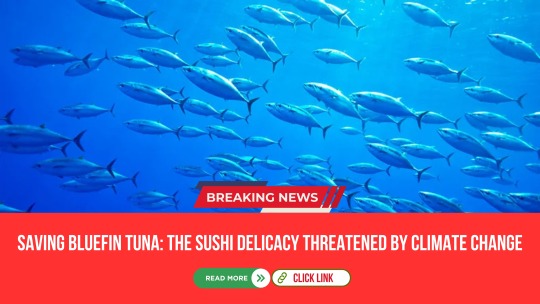
Saving bluefin tuna: The sushi delicacy threatened by climate change
Read more click here
#climate change#causes of climate change#effects of climate change#is climate change real#define climate change#impact of climate change#paris agreement on climate change#how to stop climate change#consequences of climate change#climate change definition#climate change articles#climate change and hurricanes#climate change and global warming#climate change activists#climate change articles 2024#climate change arena#climate change and health#climate change ai#climate change and agriculture#climate change art#ano ang climate change#anthropogenic climate change#about climate change#articles about climate change#adaptation to climate change#a paragraph about climate change#an essay about climate change#a poster on climate change#an effect of climate change#a cause of climate change
0 notes
Text
struggling with how to word this, but putting it out there anyway:
i can fully understand the posts on here from a lot of americans being tired of "vote blue no matter who" posts when the #1 thing that people are constantly (and sometimes only?) addressing is how the republican party is going treat trans/queer people if elected.
it's part of an unfortunate pattern of prioritizing the effects on a demographic that includes white + upper class people, when people of color and those in the global south are actively and currently being killed or relegated to circumstances in which their survival is very unlikely
it is genuinely exhausting to witness this, and i was also on the fence about even participating in voting because i a) felt like it didn't matter and b) every time i voiced being frustrated with the current state of the country, white queer people would immediately step in with "but what about trans people!" -> (i am mixed race trans man)
and i say this with unending patience toward people who do this, because i know that it's not something they actively think about. but everyone already knows how the republican party is going to treat queer people. you are probably talking to another queer person when you bring up project 2025. the issue is that, for those of us who aren't white, or for those of us who are but who are conscious of ongoing struggles for people of color worldwide, the safety of people around the world feels more urgent than our own. that is the calculation that's being made.
you're not going to win votes for the democratic party by dismissing or minimizing these realities and by continually centering (white) queer people.
very few people on here and twitter are actually talking about issues beyond queer rights that concern people of color, or how the two administrations differ on these issues instead of constantly circling back to single-issue politics. this isn't an exhaustive list. but these are the issues that have actually altered my perspective and motivated me to the point of committing to casting a vote
the biden administration has been engaged in a years-long fight to allow new applicants to DACA (Deferred Action for Childhood Arrivals, the program that allows undocumented individuals who arrived as children to remain in the country) after the Trump administration attempted to terminate it. the program is in limbo currently because of the actions of Trump-backed judges, with those who applied before the ruling being allowed to stay, but no new applications are being processed. Trump has repeatedly toyed with the idea of just deporting the 1.8 million people, but he continues to change his mind depending on whatever the fuck goes on in his head. he cannot be relied on to be sympathetic toward people of hispanic descent or to guarantee that DREAMers will be allowed stay in the country. biden + a democratic controlled congress will allow legal challenges to the DACA moratorium to gain ground.
the biden administration is open to returning and protecting portions of culturally important indigenous land in a way that the trump administration absolutely does not give a fuck. as of may 2024, they have established seven national monuments with plans to expand the San Gabriel Monument where the Gabrielino, Kizh / Tongva, the Chumash, Kitanemuk, Serrano, and Tataviam reside. the Berryessa Snow Mountain is also on the list, as a sacred region to the Patwin.
i'm recognizing that the US's plans for clean energy have often come into conflict with tribal sovereignty, and the biden administration could absolutely do better in navigating this. but the unfortunate dichotomy is that there would be zero commitment or investment in clean energy under a trump-led government, which poses an astounding existential threat and destabilizing force to the global south beyond any human-to-human conflict. climate change has caused and will continue to cause resource shortages, greater natural disasters, and near-lethal living conditions for those in the tropics - and the actions of the highest energy consumers (US) are to blame. biden has funneled billions of dollars into climate change mitigation and clean energy generation - trump does not believe that any of it matters.
i may circle back to this and add more as it comes up, but i'm hoping that those who are skeptical / discouraged / tired of the white queer-centric discourse on tumblr and twitter can at least process some of this. please feel free to add more articles + points but i'm asking for the sake of this post to please focus on issues that affect people of color.
19K notes
·
View notes
Text
My people in the homeland are dying and suffering from the heat. Mexico has always been hot but climate change is making it unbearable. The people of the global south are not the cause of climate change [not that we don’t have pollution or local pollution issues, but not to the degree of rich nations. I am specifically speaking of Mexico here] but they are made to pay the costs, the ultimate toll.
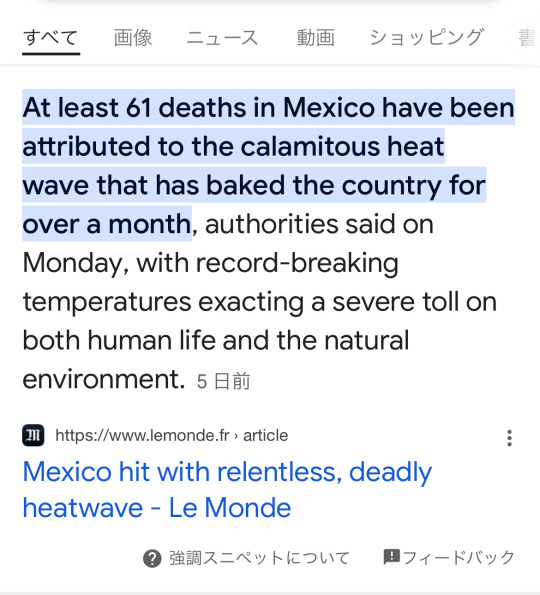
61 lives this month alone. This is not natural. What’s scary is today I saw an article questioning what are the limits of heat a human body can sustain. This is not normal!
What did these 61 humans do? What crime did they commit to be punished for the sin of global pollution. I promise you they must have been the most poor. Who couldn’t afford ac and maybe not even afford an electric fan.
The rich countries pollute and pollute while the global south suffers
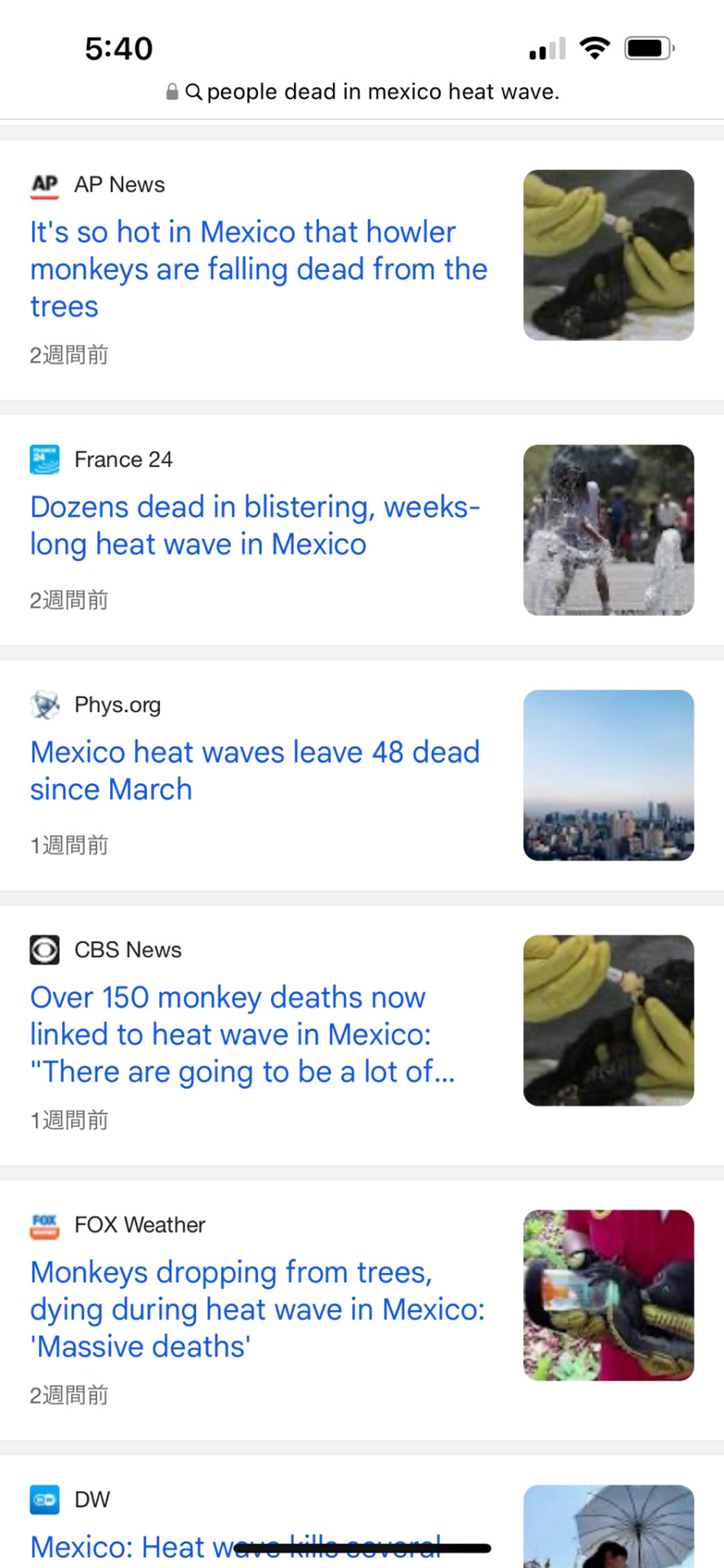
The animals are dying, and it’s not good, but it just feels like insult to injury to see a bunch of results over the animals before as many about my dead countrymen.
Brown bodies died. The rich European countries do not care. India, too, is suffering from climate change.
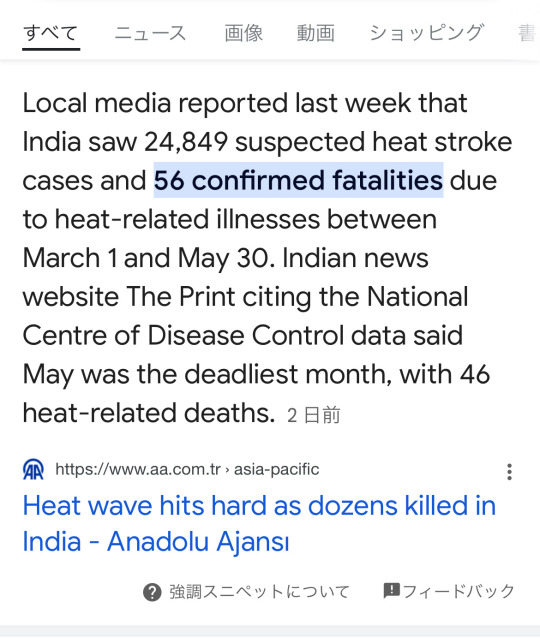
You don’t even hear about the people dead in India unless you go out of your way to seek news about climate change.
The global south burns to death, the poor are the most affected for a crime and sin they had no part in. My heart aches for my Mexico, and all other global south nations disproportionally effected by climate change
17K notes
·
View notes
Text
Impact of Monsoon Patterns on Indian Agriculture Under Climate Change
Introduction
Monsoons are the lifeblood of Indian agriculture, providing essential rainfall for crop cultivation. However, climate change is altering monsoon patterns, posing significant challenges to agricultural productivity and sustainability. This article examines the impacts of changing monsoon patterns on Indian agriculture and explores adaptive strategies to ensure food security.
Changing Monsoon Patterns
Historical Patterns and Recent Changes
Traditionally, the Indian monsoon has been characterised by predictable rainfall patterns. However, in recent years, there have been noticeable shifts, including delayed onset, erratic distribution, and increased intensity of rainfall. These changes are attributed to global climate change and have far-reaching implications for agriculture.
Impact on Crop Yields
Rice and Wheat
Rice and wheat, staple crops in India, are highly dependent on monsoon rains. Erratic rainfall can disrupt planting schedules and affect crop growth, leading to reduced yields. Prolonged dry spells or excessive rainfall can damage crops, resulting in significant economic losses for farmers.
Water Resources Management
Irrigation Systems
The changing monsoon patterns necessitate improved water resources management. Efficient irrigation systems and water conservation practices are essential to mitigate the impact of erratic rainfall. Groundwater depletion, a growing concern, must be addressed through sustainable water management practices.
Soil Health and Fertility
Erosion and Nutrient Depletion
Inconsistent rainfall can lead to soil erosion and nutrient depletion, compromising soil health and fertility. Conservation practices such as contour farming, cover cropping, and organic amendments can help maintain soil quality and support sustainable agriculture.
Pest and Disease Outbreaks
Climate change and altered monsoon patterns can increase the incidence of pests and diseases. Warmer temperatures and high humidity create favorable conditions for pest proliferation and disease outbreaks, affecting crop health and productivity. Integrated pest management strategies are crucial to combat these challenges.
Economic Implications
Impact on Farmers' Income
The variability in monsoon patterns directly impacts farmers' income and livelihoods. Crop losses due to erratic rainfall can lead to financial instability and increased debt among farmers. Ensuring economic resilience through support mechanisms is vital for the agricultural community.
Adaptation Strategies
Crop Diversification
Diversifying crops to include drought-resistant and resilient varieties can enhance agricultural resilience to climate change. Farmers can reduce their dependence on monsoon rains and improve food security by adopting diverse cropping systems.
Resilient Farming Practices
Implementing resilient farming practices such as agroforestry, conservation agriculture, and water harvesting can help farmers adapt to changing monsoon patterns. These practices enhance soil health, conserve water, and improve crop productivity.
Technological Innovations
Drought-Resistant Crops
Developing and adopting drought-resistant crop varieties is a critical adaptation strategy. Advances in biotechnology and plant breeding can produce crops that withstand water stress and thrive in variable climatic conditions.
Precision Agriculture
Precision agriculture techniques, including remote sensing, soil moisture sensors, and climate modeling, enable farmers to make informed decisions. These technologies optimize resource use, improve crop management, and enhance resilience to climate variability.
Government Policies and Support
Subsidies and Insurance Schemes
Government policies and support mechanisms, such as subsidies for irrigation infrastructure and crop insurance schemes, play a vital role in mitigating the impact of changing monsoon patterns. Financial assistance and risk management tools can provide a safety net for farmers.
Policy Reforms
Policy reforms that promote sustainable agriculture and climate resilience are essential. This includes incentivizing conservation practices, supporting research and development, and fostering collaboration between government agencies, research institutions, and farmers.
Community-Based Approaches
Local Initiatives
Community-based approaches, such as farmer cooperatives and local water management initiatives, can enhance resilience to climate change. These initiatives promote knowledge sharing, collective action, and resource pooling, empowering farmers to adapt to changing monsoon patterns.
Case Studies
Successful Adaptation Stories
Documenting and disseminating successful adaptation stories and regional examples can inspire and guide other farmers. Case studies from different regions highlight practical solutions and demonstrate the benefits of adaptive practices.
Future Projections and Research
Predictive Models
Predictive models and ongoing research are crucial for understanding future climate scenarios and their impact on monsoon patterns. Accurate projections can inform policy decisions and guide adaptive strategies for sustainable agriculture.
Conclusion
The impact of changing monsoon patterns on Indian agriculture is profound, affecting crop yields, water resources, and farmers' livelihoods. Adapting to these changes through resilient farming practices, technological innovations, and supportive policies is essential for ensuring food security and sustainable agricultural development. By embracing adaptive strategies and fostering collaboration, India can build a resilient agricultural system capable of withstanding the challenges of climate change.
Writer: Tanvi Kulkarni
#climate change#causes of climate change#climate change solutions#types of climate change#climate change news#nature climate change#facts on climate change#action against pollution#solutions for climate change#evidence of climate change#climate change issues#impact of climate change#solution to climate change#climate change solution#climate change news in India#global warming climate change#solution for climate change#effects of global climate change#ways to reduce climate change#effects of climate change#economic impacts of climate change
0 notes
Text
Time To Look At The Wider World
It’s understandable that with so much going on in our own backyard, we often forget to think about our neighbor’s yard. Here in the U.S., we have a potential dumpster fire that sucks all the air out of the room and takes up most of our time & attention. But guess what, folks? There are crises happening all over the world and whether the isolationists choose to admit it or not, those crises…

View On WordPress
#cause and effect#Climate change#ethnic violence#globalism#Papua New Guinea#Writing Despite Computers and Programmes
0 notes
Text
Understanding Climate Change: Causes, Impacts, and Future Concerns
Climate change represents a significant and enduring shift in the patterns of Earth’s weather and climate over extended periods. Currently, we are witnessing a phase largely driven by human activities, known as anthropogenic climate change. This overview explores the fundamental causes, the various impacts, and the possible future scenarios related to climate change. What is Climate…
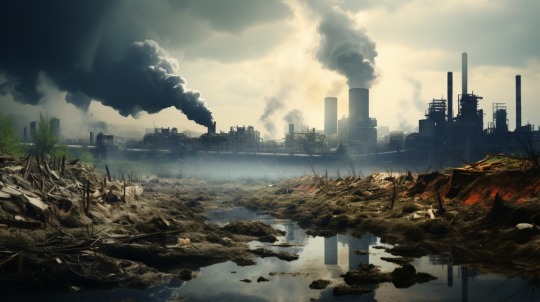
View On WordPress
#Causes of Climate Change#Climate Change Action#Climate Change Understanding#Economic Impact Climate Change#Effects of Climate Change#Extreme Weather Events#Future of Climate Change#Global Warming Impact#Greenhouse Gas Emissions#Health Risks Climate Change#Sea Level Rise
0 notes
Text
i am doing a bad job of blocking out taylor swift, i listened to poets to and from class and im watching an album reaction. im trying to figure out where the line is. a lot of senior swifties still seem comfortable with discussing theories about who songs are about and i feel conflicted now
i want to do the right thing, but i feel like im standing half in and out of a door way, and now that i know something else exists beyond what i've always done, it feels wrong and almost impossible to go back to what i was doing when it made me feel so guilty and embarrassed before
doing that feels like eating too much cake, or more than that like eating beef, or driving just to drive, it makes me feel better in the short term, but interlaced with it is the knowledge that it's going to, over time, fuck up something bigger than myself yk?
still firmly in my swiftie morality/identity crisis,
Quinn and co
#not me comparing my song muse fixation problem to climate change#is it wrong to say it causes a bigger effect that me?#idk#am i like#giant-ising taylor swift? or is it just that causing someone else harm feels bigger that bringing myself joy?#probably both but idk#too many questions too late at night#it's like almost 2 am my time#or is it?#confusing time zones are confusing you fuckers will never find me#(find what ~24th of the world i live in)#swiftie morality crisis#<<new save tag if i remember#taylor swift#poets#help
0 notes
Text
40% of Americans don't believe humans are causing climate change. Like. So what. Lowering carbon emissions will still help because it will make the air cooler (and make the air and water and earth cleaner), regrowing arctic ice will still help stabilize ocean currents and reflect heat from the sun back to space, growing trees will still stop the floods and make cities nicer and cooler. Cutting back on meat will still lower the ocean water levels and stabilize the Earth's orbital wobble. (Yes, we're at that level of draining groundwater to water crops to feed our food.) Why is the only part you care about whose fault it is
Climate denialism in the netherlands is so fucking funny like. Bro the floods. They’re coming
#the stupidest thing i've heard is a “theory” the solar system is moving into a hotter part of the galaxy#cause Alpha Centauri has such a big effect on the weather#but of course it's what's happening because why else would the climate change
53K notes
·
View notes
Text
This is kind of a weird reason for hope, honestly, but it genuinely changed how I think about catastrophe.
Historical fact that you probably do not know:
At least 30-50% of the population of Pompeii survived.
Maybe even the majority of the people of Pompeii survived.
(The numbers 30-50% there are according Professor J. Theodore Peña, a professor of ancient Roman archeology who studies Pompeii, whom I took a class on Pompeii with in 2018. The numbers of "maybe even the majority" are from articles linked below.)
Yes, that Pompeii, the one where the entire city was swallowed by a volcanic eruption.
And no, I'm not kidding. x, x, x, x, x, x
So how this is possible, that anyone could survive, when the entire city was literally buried in volcanic ash? And the answer is that the eruption actually took place over the course of almost 24 hours, as the earthquakes and clouds of smoke emitting from Pompeii gradually got worse and worse, followed by the ejection of ash and giant stones that gradually escalated, until the fifth pyroclastic flow (aka giant wave of searing hot ash) hit the city.
So, people had a bit less than 24 hours to flee the city. And many of them did, whether by boat or cart or horse or foot. And many of them made it.
Pompeii is the iconic, ultimate example we have, culturally, for a natural disaster that causes complete annihilation.
But it never caused complete annihilation at all. Not of the people who lived there.
I think climate change, ultimately, is going to be like Pompeii. Yes, there will be natural disasters. Yes, it will keep getting worse for a while.
Yes, people will die, and yes, we do need to act fast, and we need to do all that we can to save every single living being that we can.
But unlike the people of Pompeii, we have the ability to fix most of the effects of climate change. We have the ability to cool the planet down from whatever temperature it ultimately hits. (Masterpost on this here.)
Natural disasters fucking suck. But as the true story of Pompeii exemplifies, they are often a lot more survivable than we think. And we have benefits and resources and technology and knowledge above all communication that the people of Pompeii never did - in fact, we're getting so good at building for and detecting and warning for natural disasters that the number of people dying from natural disasters has been plummeting, even as natural disasters are getting worse and worse (x).
We are going to survive climate change (x). We are going to fix as much of it as we can (x). And we are going to rebuild afterward.
Because as the many survivors of Pompeii show, that's what humans do.
#pompeii#rome#roman archaeology#natural disasters#climate change#climate crisis#global warming#climate action#climate hope#hopepunk#me#not news#weird reasons for hope#might make that a tag or masterpost at some point I have a few more of these kicking around in my head#history#archeology#ancient history#climate anxiety
4K notes
·
View notes
Text
don't worry, they're joking! they're always joking when it would be something, like bigoted. because i'm not a bigot, obviously, i just vote for bigots - well, they're not bigots either, you can't really call someone a bigot just because they have religious views. this is the land of the free, and it's a christian nation, after all. you can pretend otherwise but let's just be real here; all our values are really based on the bible. anyway, i know you liberals get your panties in a twist - can i say that, or are you gonna cancel me, haha, #metoo - about every little joke he said and every little dramatic political view. oh, fascist this and fascist that. you are online too much, you love the word fascist because it's big and you're just paranoid about things.
well, no, i don't, like, read the policies. i have a life. and so what if they wrote - stop it, it's not a manifesto, okay? he eventually backed off from that - oh the vice president? who cares about that guy, that isn't real power. you're being dramatic, they're just spitballing. everyone makes big claims when they're out there campaigning. he just means he personally wouldn't get gay married. you want him to divorce his wife and get gay married? anyway, even if they cancelled gay marriage - it wouldn't happen, okay? nobody i know really cares about that - it'd be states-rights like those abortions you love so much. and you live in a blue state. you live in like the gay capital of the world. i don't know why it'd be so bad for you, you're borrowing trouble there.
and besides, you're missing the point of his campaign! you people want to be victims so bad you completely ignore what we're really voting for. there are tons of good things that happened because of his name and his policies - the economy, for one. oh stop, just because i can't tell you what a tariff is off the top of my head doesn't mean i don't have eyes. and stuff was better under him! well, yeah, anything good is his work, obviously. what? no, all the bad stuff was biden. and probably also obama. what do you even care about this, anyway? it's not going to effect you. it's four years.
oh my god, not the climate change argument again, i'm not getting into that. i don't care about it. if my house is beachfront that's great news for me. and we don't really know what's causing it. no, i saw you forwarded me those articles and i just laughed. what, do you think i have time to sit on my ass and read shit? huh? well, no, i like reading the babylon bee. they actually had a great article about all you climate freaks. and in the meantime, what do you want me to do? i'm not paying 4 dollars for gas. liberals love to talk about solutions but never pay for the solutions. what do you mean blocked because of congress. you gotta stop with the conspiracy shit.
no, my side doesn't have real conspiracy theories. the vaccine thing is a real thing. besides, you yourself don't like big pharma. just because i have an opinion, suddenly now you think big pharma is great? and this is serious, okay? your mom's friend's coworker has a kid that died from a heart event. i don't want you getting any more vaccines. i regret that you got them as a kid, i'd redo them. what do you mean you'd vaccinate your own kids? are you finally thinking of having some? you know i want grandkids - oh stop, i've never pressured you, i'm just saying that if you're going to get gay married, you might as well give me some normal grandkids to love.
stop, you know what i meant. what? no, he's not going to take away your right to adopt. besides, you could always use a sperm donor, haha, i know your high school ex would love to - jesus! okay! no need to snap. i'm just saying that you don't need to be married to have a kid. the only real benefit to marriage is taxes, haha. it won't change anything. oh my god, no, there won't be a rise in hate crimes. well, it's not his fault what people do in his name! he eventually spoke out against that, anyway.
what do you mean he supported them? i didn't hear him say that. oh. well, yeah, he said it, but like, he's clearly joking.
#:)#<---- dying internally#this but longer and angrier and constant#i wanted also btw the goalpost feeling i get all the time where u can't lock down 1 subject#to argue with them about#bc he's always joking!!!!! unless it's something they agree with.#so there's TONS to argue with them about#but they just slip and slide from one topic to another bc it's ''never that serious'' so even when u make a valid#and real point.... it's like . no you didn't.#anyway#THIS IS OBVI SATIRE BTW.
2K notes
·
View notes
Text
some people on the internet are just wrong
#i saw a video on instagram abt climate change#it had like 47 comments and at the vast majority of the comments were saying that climate change isn’t real???? huh???#one guy said like ‘your island (the uk) sinking wouldn’t do anything for climate change focus on other places like india instead’#which i mean i get help other places but what??? the fuck????#what part of ‘global warming’ makes you think this doesn’t effect everyone regardless of where the carbon emissions n shit are coming from#and also like no it has been stupid fucking hot here the past week there have been health warnings my guy this is an issue#ok i’m gonna go do something that isn’t thinking about this cause i am angry at this#angry posting#ezra’s real life rambles
1 note
·
View note
Text
hey uh so I haven't seen anyone talking about this here yet, but
the amazon river, like the biggest river in the fucking world, in the middle of the amazon fucking rainforest, is currently going through its worst drought since the records began 121 years ago
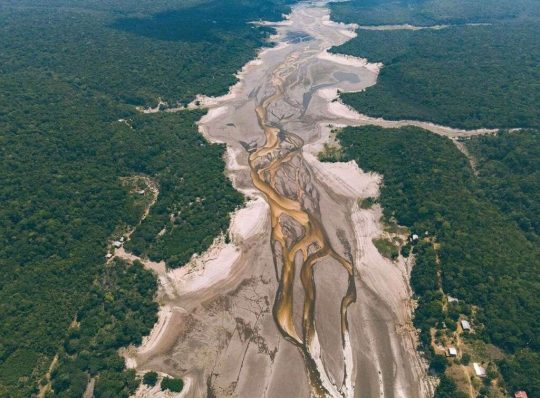
picture from Folha PE
there's a lot going on but I haven't seen much international buzz around this like there was when the forest was on fire (maybe because it's harder to shift the narrative to blame brazil exclusively as if the rest of the world didn't have fault in this) so I wanted to bring this to tumblr's attention
I don't know too many details as I live in the other side of the country and we are suffering from the exact opposite (at least three cyclones this year, honestly have stopped counting - it's unusual for us to get hit by even one - floods, landslides, we have a death toll, people are losing everything to the water), but like, I as a brazilian have literally never seen pictures of the river like this before. every single city in the amazonas state is in a state of emergency as of november 1st.
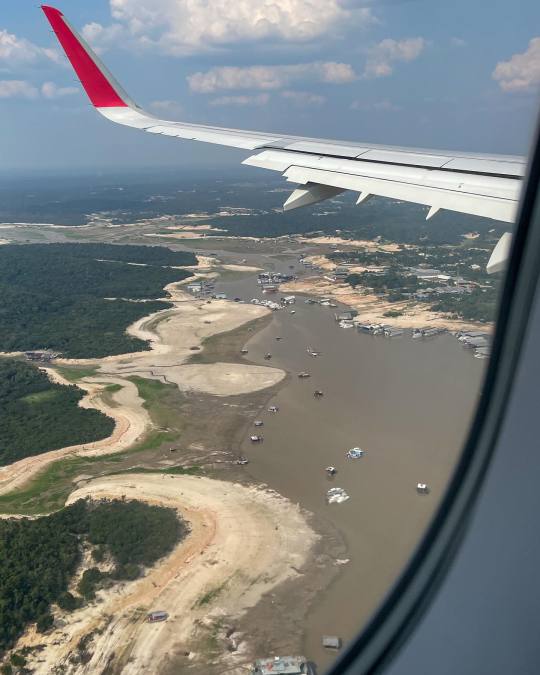
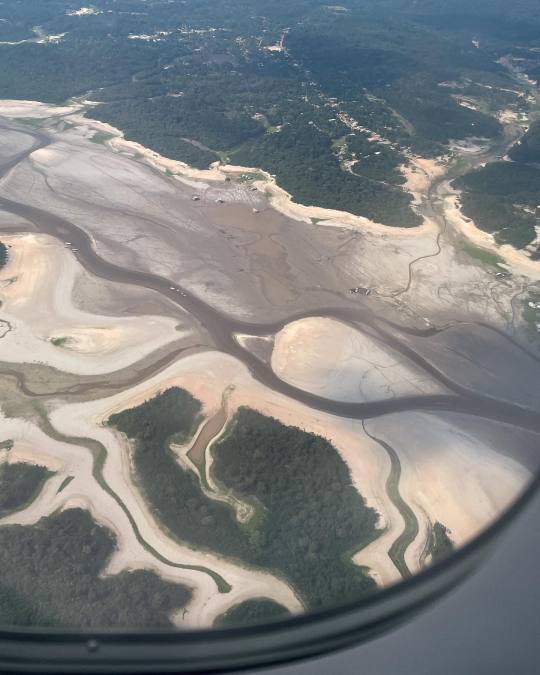
pictures by Adriano Liziero (ig: geopanoramas)
we are used to seeing images of rio negro and solimões, the two main amazon river affluents, in all their grandiose and beauty and seeing these pictures is really fucking chilling. some of our news outlets are saying the solimões has turned to a sand desert... can you imagine this watery sight turning into a desert in the span of a year?
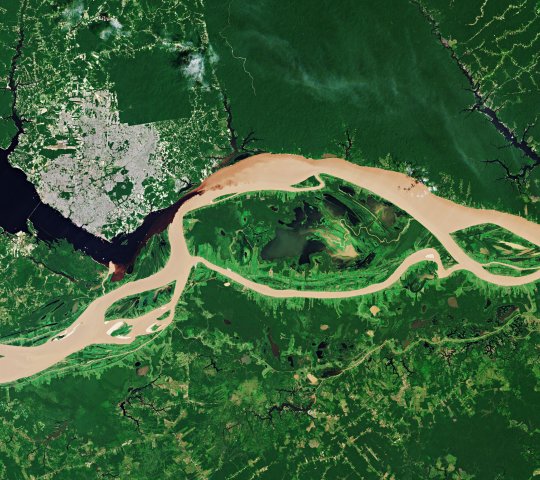
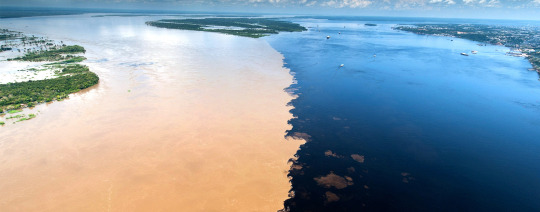
while down south we are seeing amounts of rain and hailstorms the likes of which our infrastructure is simply not built to deal with, up north people who have built everything around the river are at a loss of what to do.
the houses there that are built to float are just on the ground, people who depend on fishing for a living have to walk kilometers to find any fish that are still alive at all, the biodiversity there is at risk, and on an economic level it's hard to grasp how people from the northern states are getting by at all - the main means of transport for ANYTHING in that region is via the river water. this will impact the region for months to come. it doesnt make a lot of sense to build a lot of roads bc it's just better to use the waterway system, everything is built around or floats on the river after all. and like, the water level is so incomprehensibly low the boats are just STUCK. people are having a hard time getting from one place to another - keep in mind the widest parts of the river are over 10 km apart!!
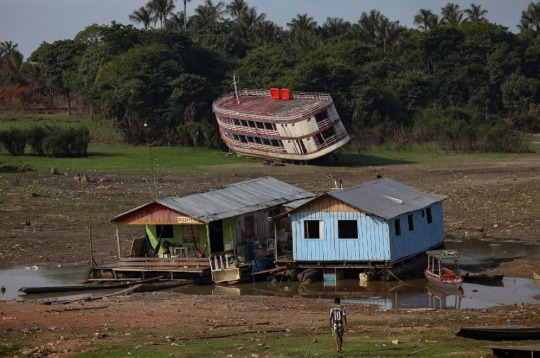
this shit is really serious and i am trying not to think about it because we have a different kind of problem to worry about down south but it's really terrifying when I stop to think about it. you already know the climate crisis is real and the effects are beyond preventable now (we're past global warming, get used to calling it "global boiling"). we'll be switching strategies to damage control from now on and like, this is what it's come to.
I don't like to be alarmist but it's hard not to be alarmed. I'm sorry that I can't end this post with very clear intructions on how people overseas can help, there really isn't much to do except hope the water level rises soon, maybe pray if you believe in something. in that regard we just have to keep pressing for change at a global level; local conditions only would not, COULD NOT be causing this - the amazon river is a CONTINENTAL body of water, it spans across multiple countries. so my advice is spread the word, let your representatives know that you're worried and you want change towards sustainability, degrowth and reduced carbon emissions, support your local NGOs, maybe join a cause, I don't know? I recommend reading on ecological and feminist economics though
however, I know you can help the affected riverine families by donating to organizations dedicated to helping the region. keep in mind a single US dollar, pound or euro is worth over 5x more in our currency so anything you donate at all will certainly help those affected.
FAS - Sustainable Amazon Fundation
Idesam - Sustainable Developent and Preservation Institute of Amazonas
Greenpeace Brasil - I know Greenpeace isn't the best but they're one of the few options I can think of that have a bridge to the international world and they are helping directly
There are a lot of other smaller/local NGOs but I'm not sure how you could donate to them from overseas, I'll leave some of them here anyway:
Projeto Gari
Caritás Brasileira
If you know any other organizations please link them, I'll be sure to reblog though my reach isn't a lot
thank you so much for reading this to the end, don't feel obligated to share but please do if you can! even if you just read up to here it means a lot to me that someone out there knows
also as an afterthought, I wanted to expand on why I think this hasn't made big news yet: because unlike the case of the 2020 forest fires, other countries have to hold themselves accountable when looking at this situation. while in 2020 it was easier to pretend the fires were all our fault and people were talking about taking the amazon away from us like they wouldn't do much worse. global superpowers have no more forests to speak of so I guess they've been eyeing what latin america still has. so like this bit of the post is just to say if you're thinking of saying anything of the sort, maybe think of what your own country has done to contribute to this instead of blaming brazil exclusively and saying the amazon should be protected by force or whatever
#solarpunk#sustainability#environmentalism#climate change#climate crisis#global warming#amazon rainforest#amazon river#geography#brazil#degrowth#punk#global boiling#ecopunk#anti capitalism#climate action#climate activism#the world does not die on my watch#i saw someone use that tag and uh i like it we should make it a thing#long post#:/ sorry i know no one likes lengthy bad news posts on their dashes but i've been thinking about this quite a bit#and i don't really know what to do to help bc i don't have money to donate and i am 10 thousand km away#i think i could be doing more to help but i am already trying my best#again dont feel obligated to share or read this but it would be nice and i would love you forever#have removed lbv from the post
7K notes
·
View notes
Text
i was thinking about this since i posted earlier about us needing to address the trend of gen z men being pulled into alt-right pipelines might have contributed to the outcome of this election.
i think contrapoints is really smart, and from what i’ve seen, has been way more effective at getting people out of harmful ideological pipelines than i’ve seen from the majority of leftists online who instead berate and drive a greater wedge of antipathy (though i understand why! and it can be very hard to have empathy for the people who see you as a threat). that antipathy makes the right more radicalized because they don’t feel like they can talk about anything without the “crazy lefties” who won’t even engage with them. where did these issues come from?
what i’ve noticed, and i’m even guilty of this, is that people don’t interact with groups of people whom they refuse talk to, which makes realities more hypothetical in the minds of their opponent since they aren’t open to seeing reality from their perspective. this is true on both sides. from what i’ve observed, it seems to originate from hypothetical perception of the opponent, but when people treat those perceptions as though they are real, it becomes real with their actions, which then makes the antipathy justified to someone. again, on both sides.
what makes contrapoints so successful at breaking this down is that is that she creates these socratic dialogue skits that represent real people and ideologies, has a sense of humor, isn’t afraid to discuss these things, reframes how we see these things by introducing nuance to both sides. she’s a leftist, but she also knows how to engage without ripening division, of meeting someone halfway and being completely humble about it. she is able to soften extremes.
she is able to get into the mind of people who aren’t aligned with her views, understand the nuance and rationales from a realistic perspective, breaking down a big block of “this is all bad” into “ok, some of this makes sense…”, what this does is create a space for self-reflection that doesn’t feel ham-fisted (which could otherwise cause people to double down on their beliefs instead of opening up to other perspectives outside of their bubble). while also being entertaining and well-produced on top of it.
youtube
what she is doing is creating these scenarios and socratic discussions that SHOULD be happening in real life but aren’t in this polarized social climate.

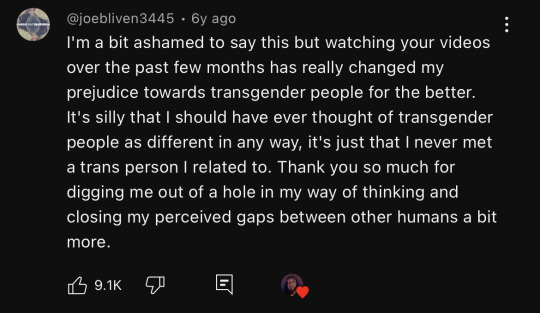
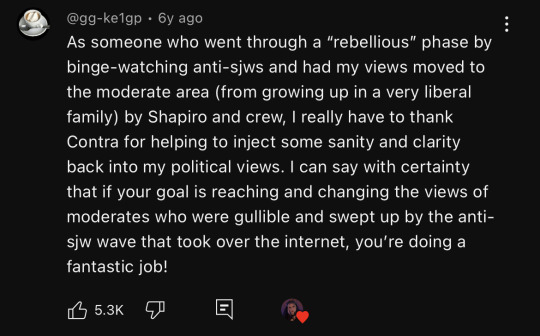


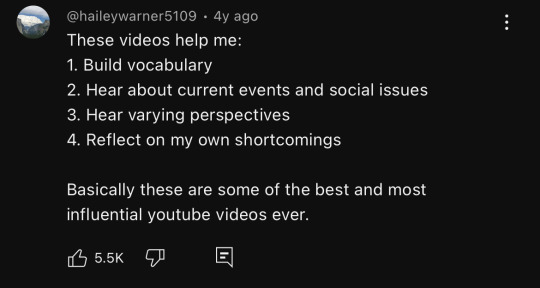

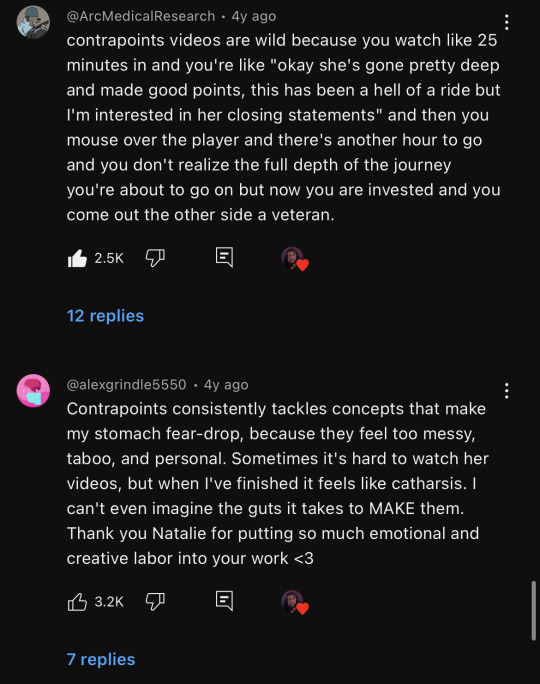


i graduated from new college of florida this spring, the small liberal arts college that was in headlines across the country for ron desantis’s board of trustees hostile takeover and exodus of professors.
new students and student athletes from conservative walks of life were being basically incentivized to go there who were taught to fear the lgbt boogeyman growing up in their conservative communities. but once they actually interacted with lgbt students there, many of them they felt like they understood them, and they weren’t as bad as they were told they would be. new college of florida was also famous for getting derek black (child of the man who created stormfront, and godchild of the kkk grand wizard david duke) out of white nationalism. their peers at NCF called them out but also interacted with them, invited them to dinner. black wrote a book about it.
now of course some people are too far gone and you shouldn’t waste your time with them, like derek’s family for example. but i also think a lot of people who voted for trump are not informed, are operating off of emotion and knee-jerk mentality because it’s easier than thinking, and they are not seeing the discussions that need to be had to change their mind because fuckin…nobody is doing them.
and we feel this visceral disgust to people of the opposing party because of its associations. i just want to know how it happened and how we got to be like this. i think social media is partly to blame and also the algorithms that take people down dangerous pipelines and sharpen them, insulate them.
i myself understand the vitriol you might have for anyone that voted for trump. i feel so disappointed that half the people of this country voted against our collective benefit. and i’ve seen a lot of sentiment from the left today saying “every single person who voted for trump is dead to me. i disowned you”.
you can see the reality of trump’s demagoguery, and it’s so obvious, but what i want to know is: what do they see? why did they vote for him? emotion and entertainment travel faster and have more reach than reason. and it’s that’s why i think contrapoints’s videos are exemplary at tackling this ideological divide. this is something i’ve been thinking about for months before today and i thought now was a better time than ever to give my two cents on it.
1K notes
·
View notes